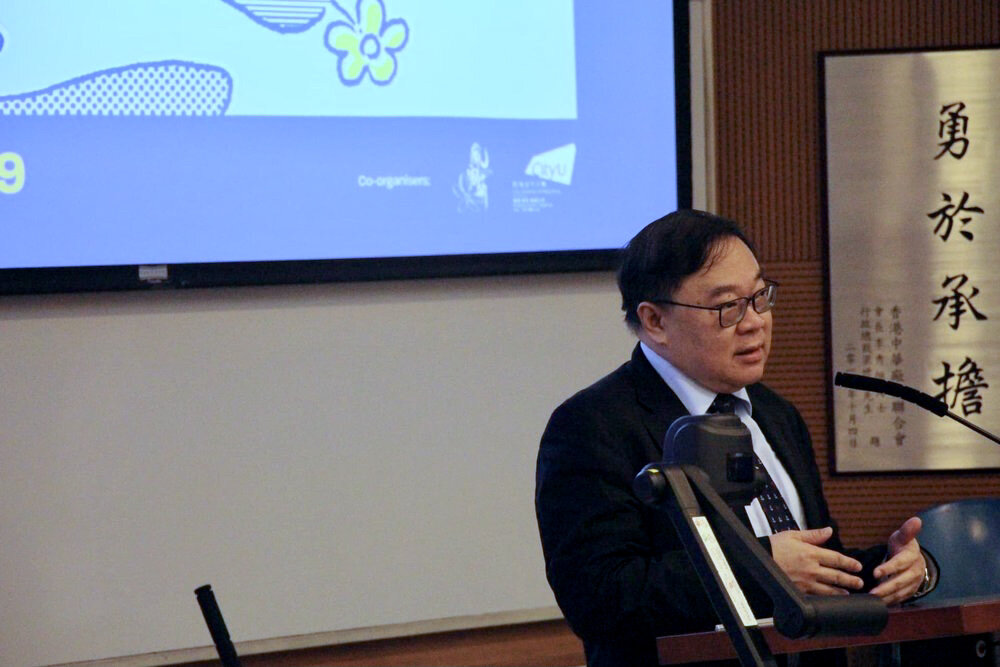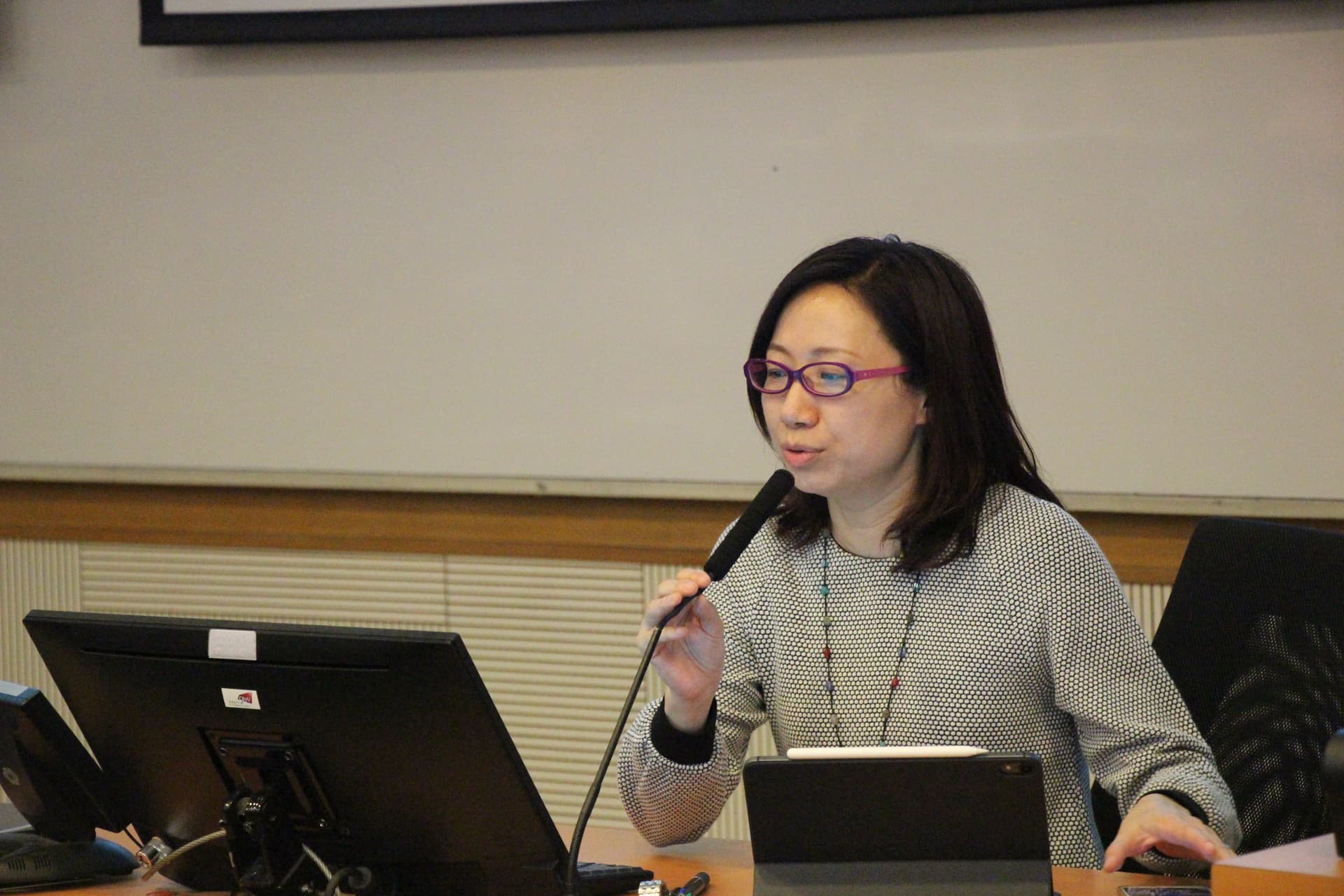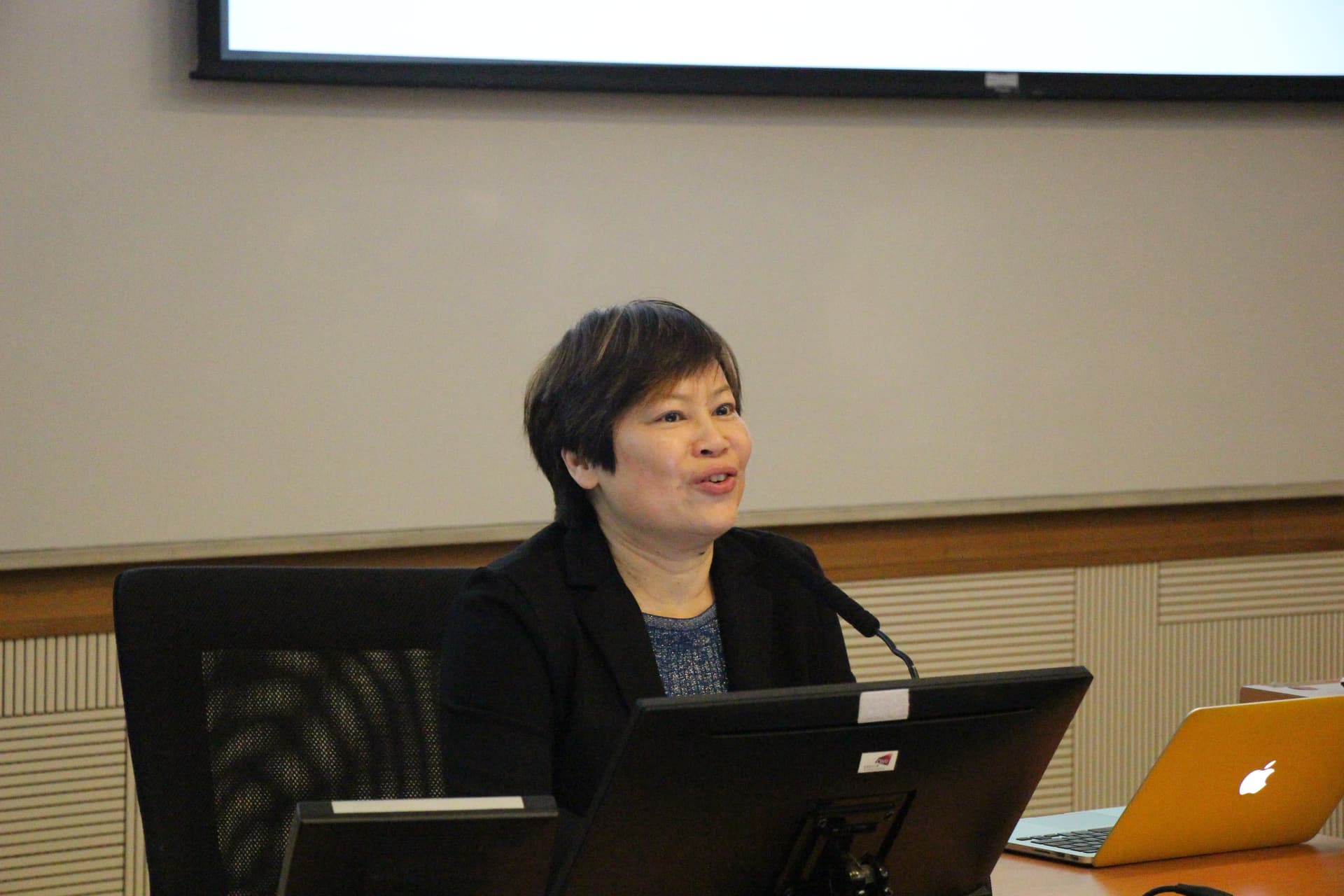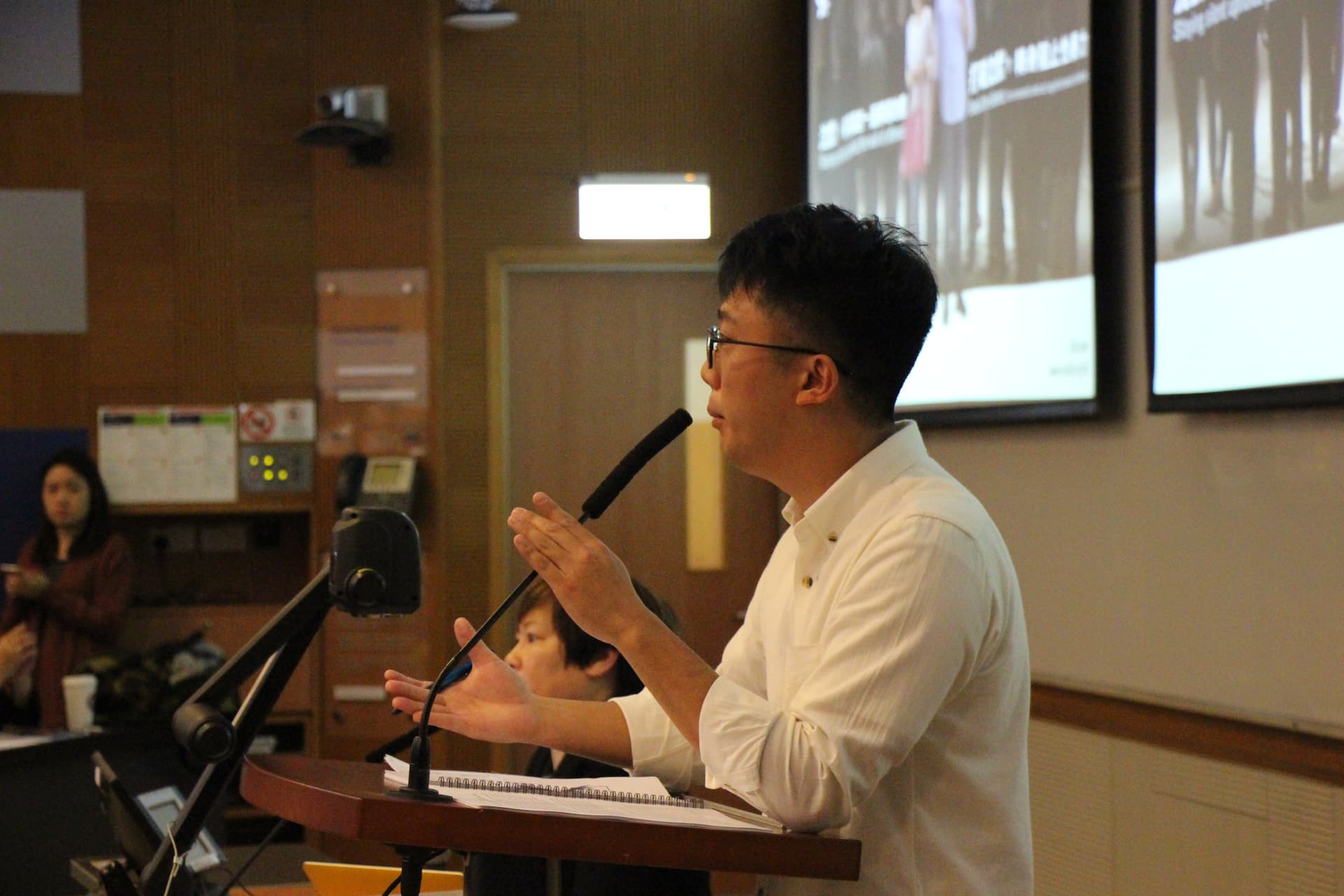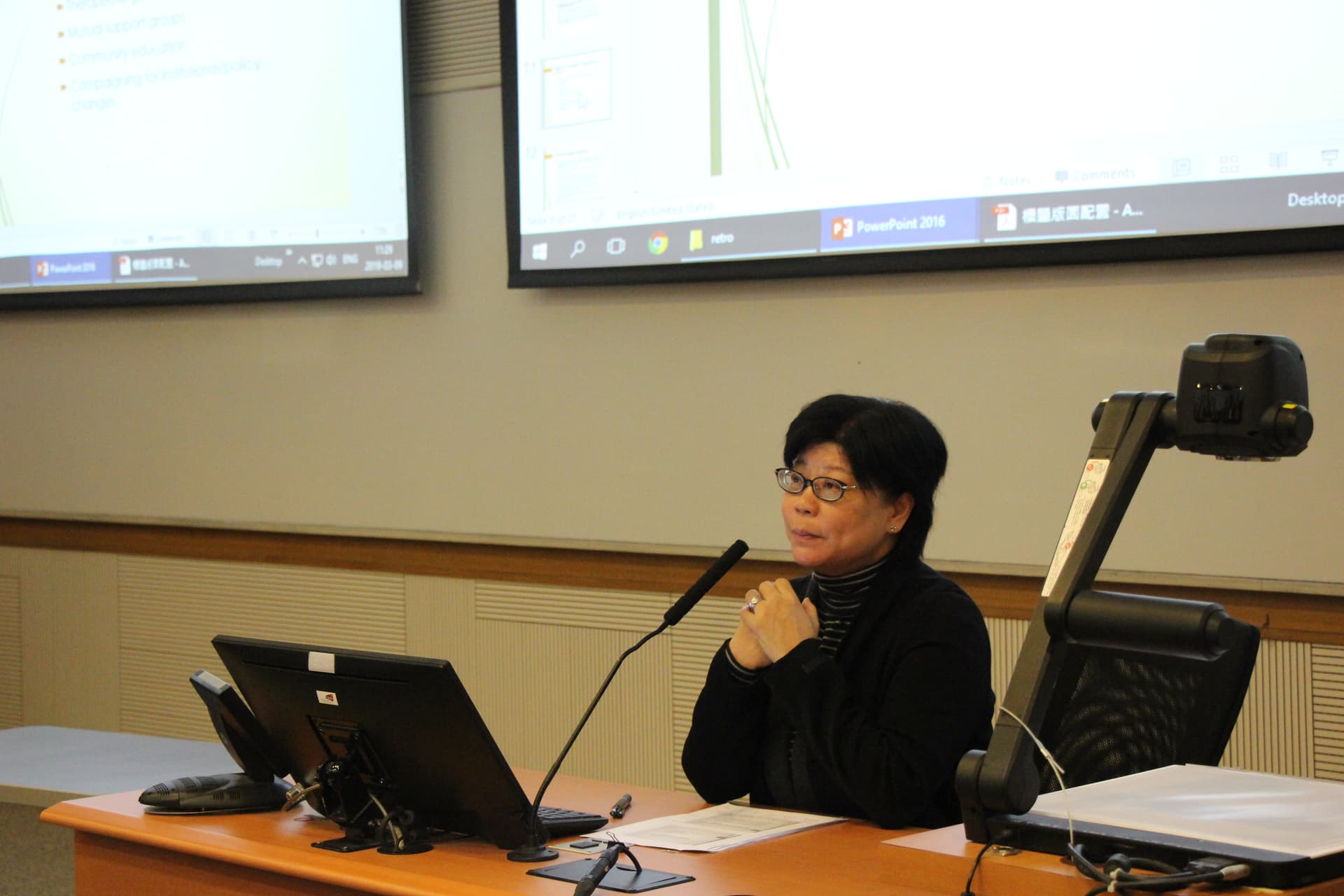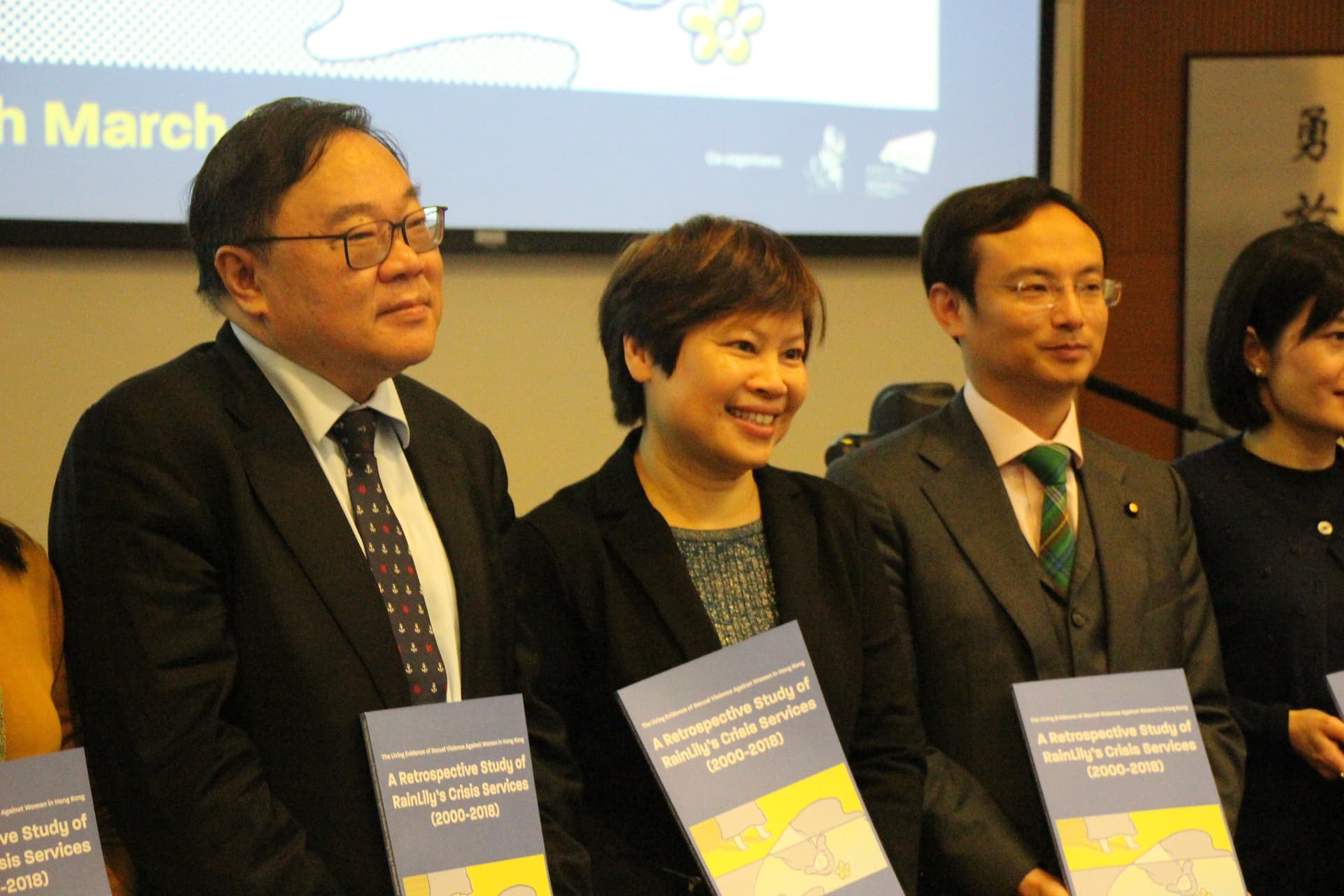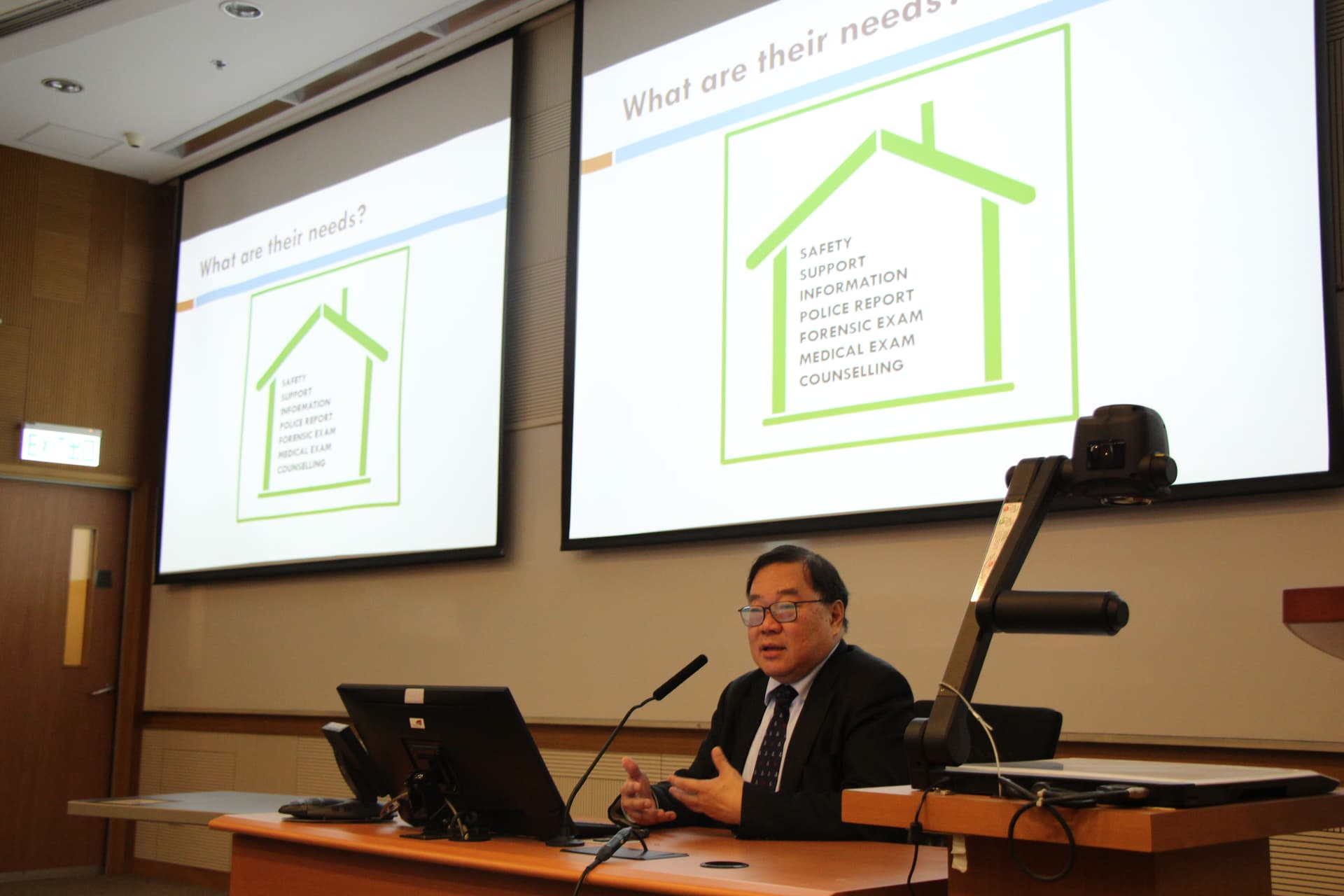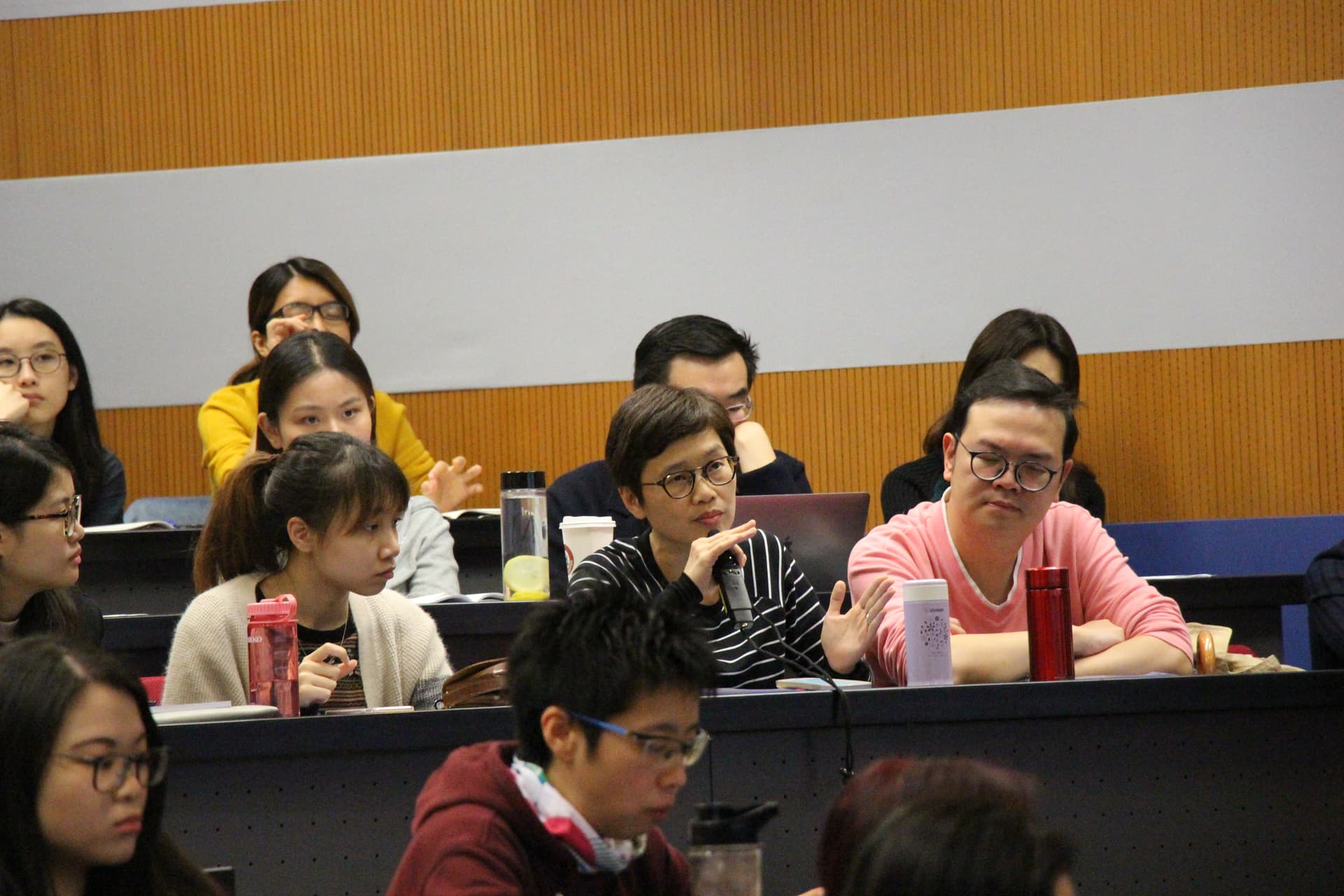RainLily Retrospective Report Uncovers Survivors' Delayed Presentation A Major Issue Despite Rising Trend on Reported Sexual Violence Cases
Report Launch Seminar:
'The Living Evidence of Sexual Violence Against Women in Hong Kong: A Retrospective Study of RainLily's Crisis Services (2000-2018 )'
RainLily, the first sexual violence crisis centre in Hong Kong, today (9/March) launched a major report, 'The living evidence of sexual violence against women in Hong Kong: A retrospective study of RainLily's crisis services (2000-2018)' at the report launch seminar at the City University of Hong Kong. RainLily handled over 14,000 request-for-assistance regarding sexual violence from 2000-2018, the report studied and analysed 3,611 of the cases that RainLily provided in-depth counselling and follow-up services to deliver more detailed figures. The report launch seminar was attended by professionals from different sectors, aiming to gain a better knowledge of issues involved and to improve related coping strategies.
Linda SY WONG, Executive Director of RainLily, introduced some key findings of the study at the seminar:
1. The rising trend of reported cases
Of the 3,611 sexual violence cases reported, rape cases take up the majority (64.2% or 2,318 cases), followed by indecent assault cases (30.0% or 1,083 cases), and sexual harassment cases (5.8% or 210 cases). The overall picture through years is demonstrating a rising trend of all kinds of sexual violence cases. The study has found that cases involving indecent assault had the most considerable rise, followed by sexual harassment cases. The trend reflects the continued severity of sexual violence against women in Hong Kong but is also evident that more survivors are determined to seek help over the years.
2. Most of the perpetrators are known to their victims
The research has also revealed that over 80% of perpetrator are known to the victim, reported relationships include relatives, intimate partners, friends, and colleagues. This finding debunked the myth that sexual violence is mostly perpetrated by strangers. Moreover, more than half of the sexual violence cases took place in residential premises, over one-tenth of the victims were cohabitating with the perpetrator when the incident occurred. Only approximately 10% of the cases were happened in a public outdoor space (e.g. on street, or Public Park).
3. Serious and common delay reporting phenomenon
The study counted the days between when the assault happened to when it was reported to RainLily, it has been uncovered that victims took an average of 1389 days (approximately 3.8 years) before reaching out to RainLily. The data has recorded over 10% of victims had a delay of 10 years or above before coming forward for assistance – with the longest delay to be 58 years. Of the 3,611 cases, only 10% of the victims would seek help from RainLily within a day, the delay is significantly obstructing a victim to gain timely access to appropriate assistance. Across the three categories, cases of indecent assault displayed the lengthiest delay, with an average of 2,455 days (approx. 6.7 years), followed by rape cases (average 959 days, or approx. 2.6 years), and sexual harassment (average 634 days, or approx. 1.7 years). It should be concluded that the situation of delay-reporting is a very common and worrying.
4. The vulnerable situation for children and female teenagers
The report found that over 20% of cases involved a victim that was under the age of 16 years old when the assault happened, with the youngest victim to be only 1 year old. In terms of relationship with perpetrator, 45.1% of under 16-year-old cases involved a perpetrator that is a family member or relatives. This relationship takes up only 5.8% for cases that involved a 16-year-old or above victim. Additionally, nearly 30% of under 16-year-old cases were living with the perpetrator when the assault happened. This takes up merely 10% for victim above the age of 16. The study also highlights that victims under the age of 16 in average delay their reporting for assistance for 4,814 days (approx. 13.2 years), the duration is ten times the average for victims above 16 years old (444 days, or approx. 1.2 years). These worrying figures show that victims of different backgrounds face very different obstacles, and children and female teenagers are particularly vulnerable to handling sexual violence and the related issues.
The report has concluded that sexual violence against women is still a crucial issue that lacks sufficient awareness and proper intervention in Hong Kong through these years. The concerning delay-reporting situation further affirms the urgent necessity in perfecting a mechanism and environment that encourage victims to seek help as soon as possible. The report suggests the government and all sectors of the community to increase their effort in combating sexual violence, that includes reform and improvement on preventive and supportive measures.
The report launch seminar was also attended by legislator Dr Hon Pierre CHAN, Associate Professor of the Department of Social Work, Hong Kong Baptist University Dr Shirley SL HUNG, Hong Kong Baptist University, barrister-at-law Ms Linda SH WONG, and forensic pathologist Dr Philip SL BEH to offer advice in improving services provided to victims of sexual violence and explore resolutions within and beyond the current system.
‘The moment in Legislative Council, we look forward with greatest enthusiasm to pushing the government to expedite the process of setting up 24-hour one-stop sexual violence victims and abused children support services in public hospitals,’ said Hong Kong Legislative Councillor (Medical Sector) Dr Hon Pierre CHAN.
‘There appears to be no community or government concerns at the decreasing numbers of victims of rape making police reports,’ said forensic pathologist Dr Philip SL BEH. ‘When contrasted with the fact that more victims are seeking help from RainLily, the situation is indicative of a decreasing sense from victims that the criminal justice system is not meeting their needs.
‘It has also been discovered that there is a notable difference in the victimisation experience between victims that are under and above the age of 16. Adults and parents play a critical role when a child who has been sexually assaulted, however, some of them found difficulties in managing the situation and tend to trivialize it or even rationalize the behaviour of the perpetrator in order to maintain the family relationship’, said Associate Head and Associate Professor of the Department of Social Work, Hong Kong Baptist University, Dr Shirley HUNG. ‘This push the children and female teenagers’ victims to a more helpless condition.’
‘We can noticed that some people, even the judges and lawyers has difficulties on understanding victim’s situation. Some of them will expect the victims to react with “common responses” or “reasonable responses”, ’said barrister-at-law Ms Linda SH WONG ‘However, in the reality, victims are usually in a weaker position and cannot react to such unequal of power relation. This myth of the ‘perfect victim’ is an obstacle across the path of justice.’

